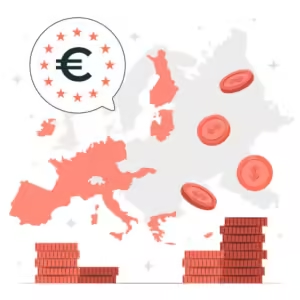Investment in European Market: A Comprehensive Guide for European Investors
Investment is a critical tool for building wealth and achieving financial security. In Europe, where economic conditions and opportunities vary significantly across regions, understanding how to invest effectively is crucial. This guide will provide an in-depth look into the investment landscape in Europe, helping you make informed decisions whether you are a seasoned investor or just beginning your financial journey.

Understanding the European Market Landscape
Europe is not a monolithic entity; it consists of 27 countries in the European Union (EU) and several non-EU countries, each with its own economy, regulations, and market conditions. The diversity in Europe offers both challenges and opportunities for investors.
- Economic Diversity: Europe’s economic landscape is varied, with robust economies like Germany and France, emerging markets in Eastern Europe, and financially struggling economies like Greece. Understanding the economic conditions in each country can help investors tailor their strategies accordingly.
- Currency Considerations: While many European countries use the Euro (€), some countries like the United Kingdom (GBP), Switzerland (CHF), and Denmark (DKK) have their own currencies. Currency fluctuations can significantly impact investment returns, making it essential to consider hedging strategies or investing in Euro-denominated assets to reduce currency risk.
- Regulatory Environment: European financial markets are heavily regulated, but the degree and nature of regulation can vary by country. Understanding the regulatory framework in each country is essential, particularly when investing in complex financial products or foreign markets.
Also Read-https://khabarmania.com/investing-101-how-to-grow-your-wealth/
Key Investment Options in Europe
Europe offers a range of investment options that cater to different risk profiles and investment goals. Here’s a breakdown of some popular choices:
- Equities (Stocks): Investing in European stocks can be a lucrative option, especially in stable and growing economies like Germany and France. European stock markets are mature and offer a range of sectors, including technology, healthcare, and consumer goods. The key exchanges include the London Stock Exchange (LSE), Euronext, and Deutsche Börse.
- Bonds: European bonds are an attractive option for risk-averse investors. Government bonds, particularly those from stable economies like Germany and Switzerland, are considered safe investments. Corporate bonds from established European companies can offer higher returns but come with additional risk.
- Real Estate: The European real estate market offers diverse opportunities, from high-end properties in cities like Paris and London to emerging markets in Eastern Europe. Investing in real estate can provide a stable income stream through rental yields and potential capital appreciation.
- Mutual Funds and ETFs: For those looking for a diversified investment, mutual funds and exchange-traded funds (ETFs) offer a convenient way to invest in a basket of European assets. These funds can focus on specific sectors, regions, or investment strategies, making them a versatile option for different investor needs.
- Cryptocurrencies: Although relatively new, cryptocurrencies are gaining popularity in Europe. Countries like Germany and Switzerland are becoming hubs for blockchain technology and cryptocurrency investment. However, this market is highly volatile and speculative, so it’s essential to approach with caution.
- Private Equity and Venture Capital: For investors with a higher risk tolerance, private equity and venture capital provide opportunities to invest in European startups and growth companies. Europe has a thriving startup ecosystem, particularly in technology hubs like Berlin, Stockholm, and Amsterdam.
Strategies for Investing in Europe
Investing in Europe requires a thoughtful approach due to the region’s complexity and diversity. Here are some strategies to consider:
- Diversification: Diversifying your investment portfolio across different asset classes, sectors, and regions is crucial in Europe. This approach helps mitigate risks associated with economic downturns in specific countries or sectors. For example, combining investments in Western European stocks with Eastern European real estate can provide a balanced risk-return profile.
- Long-Term Focus: European markets can be volatile in the short term due to political and economic factors. However, a long-term investment approach can smooth out these fluctuations and yield significant returns. Investing in blue-chip companies, government bonds, and real estate with a long-term perspective can be particularly rewarding.
- Sustainable Investing: Europe is a global leader in sustainable investing, with a strong focus on Environmental, Social, and Governance (ESG) factors. Many European investors prefer companies that prioritize sustainability and ethical practices. Investing in ESG-focused funds or companies can align your investments with your values while potentially benefiting from the growing demand for responsible investments.
- Currency Risk Management: For investors in non-Euro countries, managing currency risk is essential. This can be done through hedging strategies or by investing in assets denominated in the investor’s home currency. For example, UK investors may prefer to invest in GBP-denominated assets to avoid exposure to Euro or other currencies.
- Political and Economic Monitoring: Europe’s political landscape can significantly impact financial markets. Elections, policy changes, and economic reforms in key countries like Germany, France, and the UK can create market volatility. Staying informed about political and economic developments in Europe is crucial for making timely investment decisions.
Risks and Challenges in European Investing
While Europe offers numerous investment opportunities, there are also risks and challenges to consider:
- Political Uncertainty: Events like Brexit and political instability in certain regions can create uncertainty in European markets. Political changes can impact regulations, trade agreements, and economic policies, leading to market volatility.
- Economic Disparities: The economic conditions in Europe can vary widely between countries. While some countries like Germany and Sweden have strong economies, others like Greece and Italy face economic challenges. Investing in weaker economies can be risky, particularly during economic downturns.
- Regulatory Differences: Each European country has its own regulatory framework, which can affect investments. For example, tax laws, capital controls, and investment regulations can vary significantly. Investors need to understand the regulatory environment in each country where they invest.
- Currency Fluctuations: Currency risk is a significant concern for European investors, particularly when investing across borders. Fluctuations in exchange rates can impact returns, especially for long-term investments. Investors need to consider hedging strategies to manage this risk.
- Market Saturation: In some regions of Europe, particularly in Western Europe, markets can be highly competitive and saturated. This can make it challenging to find undervalued assets or high-growth opportunities, particularly in the real estate and equity markets.
Emerging Opportunities in Europe
Despite the challenges, Europe presents several emerging opportunities for investors:
- Green Energy: Europe is at the forefront of the global shift towards renewable energy. Countries like Germany, Denmark, and Spain are leading in solar, wind, and other green energy technologies. Investing in green energy companies or funds focused on renewable energy can be a way to capitalize on this growing sector.
- Technology and Innovation: European tech hubs like Berlin, Stockholm, and London are home to a thriving startup ecosystem. Investing in technology companies, particularly those involved in artificial intelligence, fintech, and biotech, can provide high-growth opportunities. Venture capital funds focusing on European startups are another way to gain exposure to this sector.
- Healthcare and Biotechnology: Europe has a strong healthcare and biotechnology sector, with leading companies in pharmaceuticals, medical devices, and biotechnology. The aging population in Europe is driving demand for healthcare services and innovations, making this sector an attractive investment opportunity.
- Eastern European Markets: While Western Europe is more established, Eastern Europe offers emerging market opportunities. Countries like Poland, Hungary, and Romania are experiencing rapid economic growth and development, providing opportunities in real estate, infrastructure, and consumer goods.
- Luxury Goods: Europe is known for its luxury goods industry, with iconic brands in fashion, automobiles, and consumer goods. Investing in companies that produce luxury goods can be a way to benefit from global demand, particularly from emerging markets in Asia and the Middle East.
Practical Tips for European Investors
Start with a Clear Plan: Before investing, it’s essential to have a clear investment plan. Define your financial goals, risk tolerance, and time horizon. This will help guide your investment decisions and ensure that your portfolio aligns with your objectives.
- Seek Professional Advice: Investing in Europe can be complex, particularly for those unfamiliar with the region. Consider seeking advice from financial advisors or investment professionals who specialize in European markets. They can provide valuable insights and help you navigate the complexities of investing in Europe.
- Stay Informed: Keeping up with market trends, economic data, and political developments in Europe is crucial for making informed investment decisions. Regularly review your portfolio and adjust your investments as needed to align with changing market conditions.
- Consider Tax Implications: Taxation can significantly impact investment returns. Each European country has its own tax laws, and cross-border investments can be particularly complex. Understanding the tax implications of your investments and seeking tax advice can help you optimize your returns.
- Diversify Across Regions: Europe’s diversity is one of its strengths. Consider diversifying your investments across different countries and regions within Europe to spread risk and take advantage of growth opportunities in various markets.
Investing in Europe offers a wealth of opportunities, but it also comes with its own set of challenges. By understanding the European market landscape, diversifying your portfolio, and staying informed about economic and political developments, you can navigate these challenges and make informed investment decisions.
Whether you’re investing in equities, bonds, real estate, or emerging sectors like green energy and technology, Europe provides a diverse and dynamic investment environment. With careful planning and a long-term perspective, you can build a robust portfolio that helps you achieve your financial goals in the European market.
Also Read-https://guidesbar.com/forex-trading-a-journey-into-the-world/
Some FAQs on Investment in European Market
- How do European markets differ from the US and Asia?
European markets vary greatly in economic stability and regulations. Unlike the more uniform US market, Europe involves currency risks and diverse political landscapes, with a strong focus on sustainable investing (ESG). - Is it better to invest in individual European stocks or funds?
Individual stocks offer targeted investments but require market knowledge. Mutual funds or ETFs provide diversification and are less risky, ideal for those preferring a more hands-off approach. - How can I reduce currency risk when investing in Europe?
To manage currency risk, consider investing in Euro-denominated assets, using hedging strategies, or diversifying your investments across different currencies. - What are the tax implications of investing in Europe?
Taxation varies by country. Key considerations include capital gains, dividend tax, and withholding tax on foreign investments. Consult a tax advisor for specific advice. - How important is sustainable investing (ESG) in Europe?
ESG investing is prominent in Europe, with many investors and regulations favoring companies with strong environmental, social, and governance practices. - How do political events like Brexit affect European investments?
Political events can cause market volatility. Brexit, for example, impacted trade agreements and regulatory environments, especially in the UK. - Which sectors or regions in Europe offer high growth potential?
High-growth areas include green energy, tech hubs like Berlin and London, and emerging markets in Eastern Europe, such as Poland and Hungary. - Is real estate investment in Europe a good idea?
Real estate in Western European cities like Paris and Berlin offers stable returns, while emerging Eastern European markets provide more affordable opportunities. - How can a beginner start investing in European markets?
Begin by learning about European markets, starting small with ETFs or mutual funds, and consulting a financial advisor to guide your first steps. - What are the risks of investing in European bonds versus stocks?
Bonds are less risky than stocks but are subject to interest rate, credit, and currency risks. Balancing bonds and stocks can help manage your investment risks.









